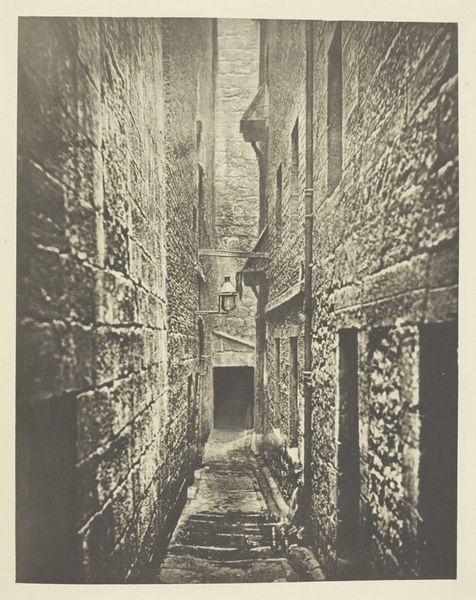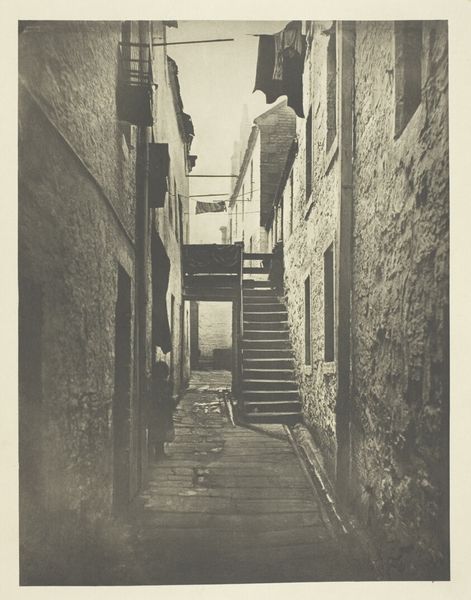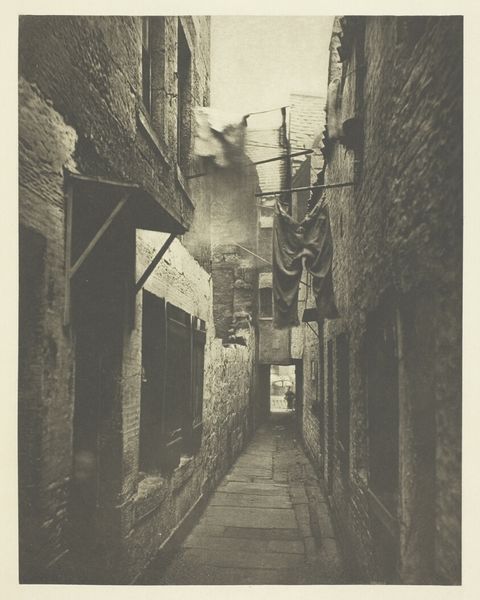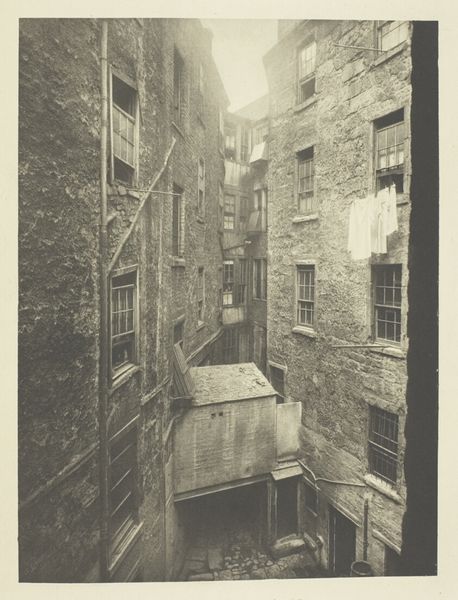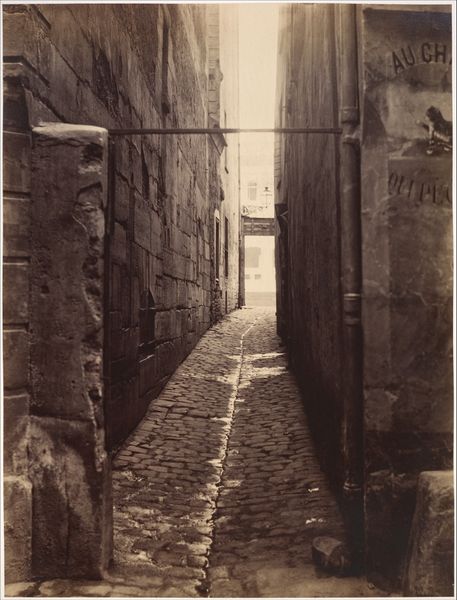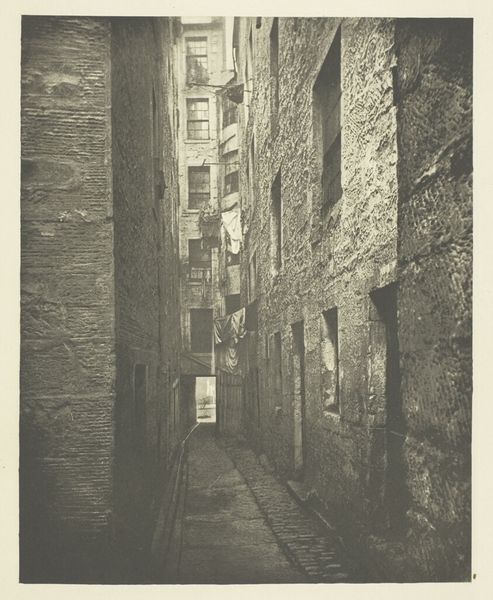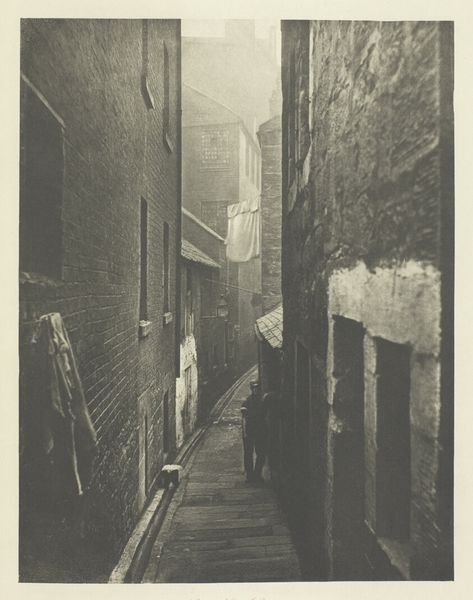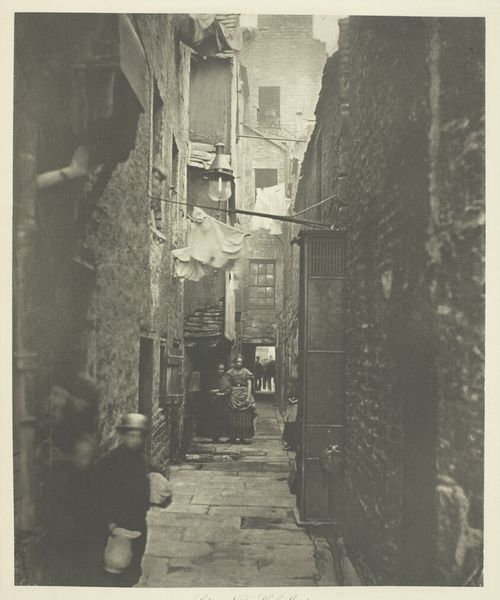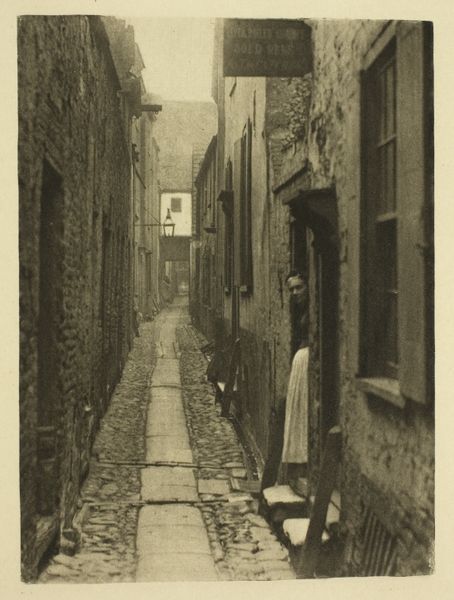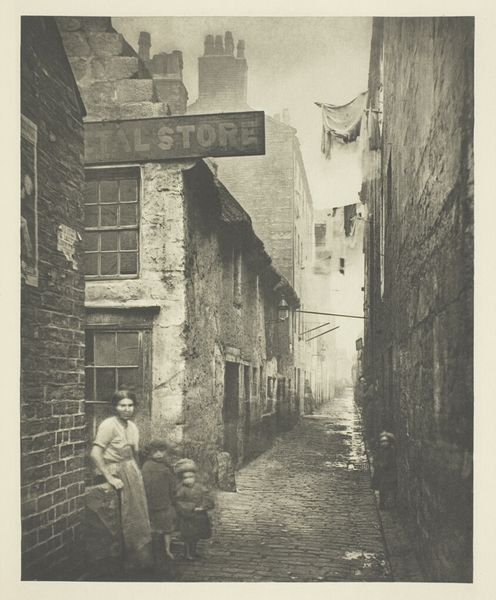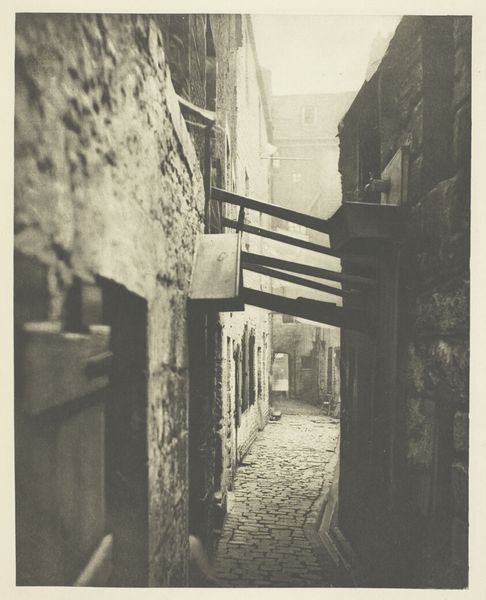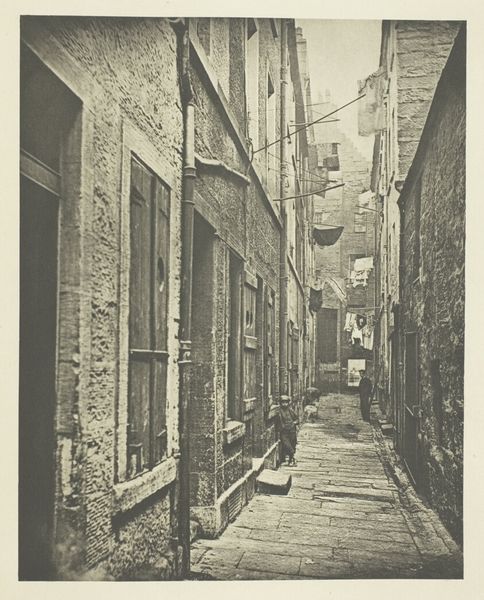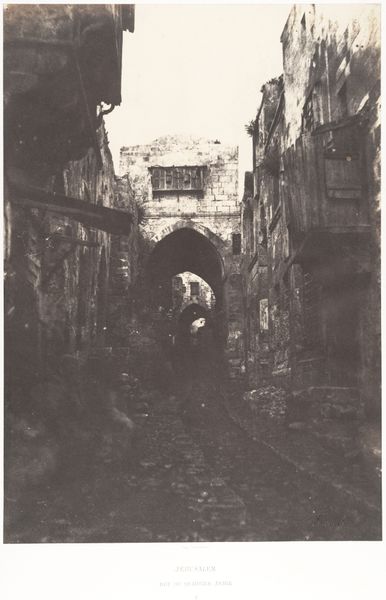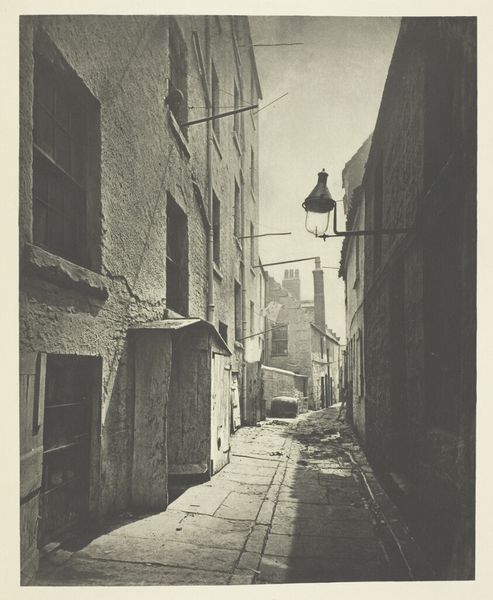
print, photography
#
print photography
#
16_19th-century
#
pictorialism
# print
#
wedding photography
#
light coloured
#
landscape
#
archive photography
#
street-photography
#
photography
#
cityscape
Dimensions: 22.7 × 18.2 cm (image); 38 × 27.7 cm (paper)
Copyright: Public Domain
James Craig Annan made this photogravure, Close No. 11 Bridgegate, using a labor-intensive process that's worlds away from our digital photography today. Annan, who lived from 1864 to 1946, was a leading figure in the Pictorialist movement, which sought to elevate photography to the status of fine art. The photogravure process itself is key to understanding this ambition. It involves etching a photographic image onto a copper plate, which is then inked and printed onto paper. This allowed for a tonal range and depth of detail previously unattainable in photography. The image shows a narrow alleyway, likely in Glasgow, Scotland, where Annan lived. The buildings are constructed from stone and brick, materials that speak to the industrial age and the dense urban environment. This is further emphasized by the presence of a mother and child in the photograph, hinting at themes of poverty and urban life. Annan’s skilled manipulation of light and shadow, combined with the tactile quality of the photogravure print, transforms an everyday scene into a compelling work of art. It invites us to look closely at the materials, processes, and social context that shaped the image, and continues to resonate today.
Comments
No comments
Be the first to comment and join the conversation on the ultimate creative platform.
